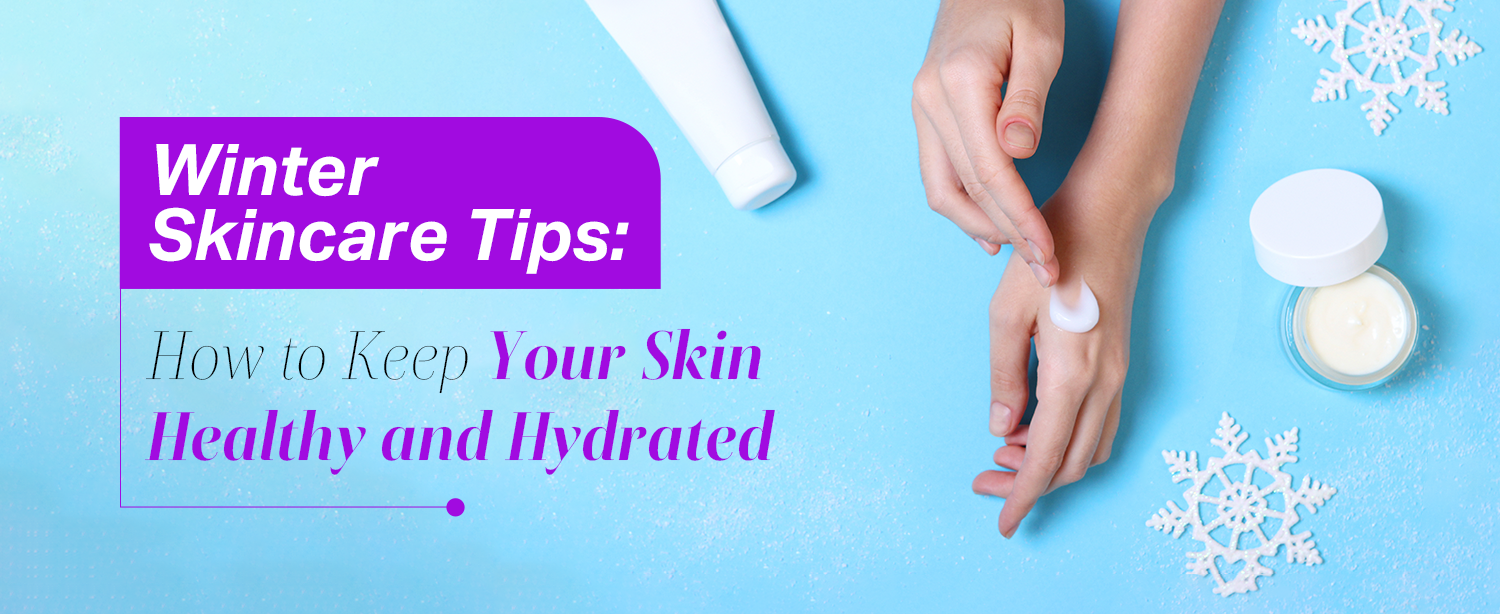Winter can be harsh on your skin. The combination of cold air, low humidity, and indoor heating often strips the skin of its natural moisture, leaving it dry, flaky, and prone to irritation. India experiences winter in varying intensity across the nation and these seasonal changes can challenge your skin’s health. Let us understand the essential winter skincare tips to help you maintain smooth, hydrated, and radiant skin throughout the colder months.
Table of Contents
What Happens to your Skin in Winter?
During winter, your skin’s barrier function weakens due to a reduction in natural moisturizing factors. Additionally, factors like cold air, dry winds, and indoor heating exacerbate the problem, leading to conditions like redness, itchiness, and cracking. In India, where temperature variations are vast across regions, these effects are especially pronounced in northern areas that experience severe winters.
Common Winter Skin Issues
Here are some skin concerns that tend to worsen in winter:
- Dry Skin (Xerosis)
Characterized by flakiness, roughness, and itching. - Eczema
Cold weather often triggers flare-ups, leading to red, inflamed patches. - Psoriasis
Reduced sunlight and cold air can worsen scaly, itchy patches. - Keratosis Pilaris (Chicken Skin)
Tiny bumps on the arms or thighs become more noticeable during winter. - Chapped Lips and Hands
These areas are frequently exposed to the elements and prone to dryness.
Essential Winter Skincare Tips
Let us look into some essential winter skincare tips:
- Moisturize Immediately
Washing strips your skin of its natural oils. It is recommended to apply a rich cream or ointment immediately after washing your face or hands. Look for moisturizers with ceramides, hyaluronic acid, or petrolatum. - Use Hydrating Cleansers
Avoid harsh soaps and opt for mild, fragrance-free cleansers that don’t strip your skin. For acne-prone skin, use oil-free, hydrating cleansers. - Protect your Skin from the Sun
The harsh UV rays of the sun can harm your skin even in the winter season. It is advisable to use a sunscreen with SPF 30 or higher daily. - Avoid Hot Showers
Hot showers may feel soothing but can dehydrate your skin. Use lukewarm water instead and limit showers to 10–15 minutes. - Incorporate Humidifiers
Running a humidifier at home helps counteract the dryness caused by indoor heating. This is especially beneficial in northern and central India during harsh winters. - Stay Hydrated
Keep your skin hydrated from within by drinking plenty of water. Include foods rich in omega-3 fatty acids and antioxidants, like walnuts, flaxseeds, and spinach, to nourish your skin. - Wear Gloves
To protect your hands from the cold and dryness, wear wool or cotton gloves when stepping outside. For household chores, use silicone gloves to avoid contact with hot water and detergents. - Exfoliate Gently
Exfoliation helps remove dead skin cells but should be done carefully in winter. Opt for chemical exfoliants like lactic acid instead of harsh physical scrubs. - Opt for Non-Irritating Fabrics
Avoid fabrics that can irritate dry skin, such as wool directly on the skin. Stick to soft, natural materials like cotton and layer your clothing for warmth. - Care for Your Lips
Apply a hydrating lip balm with SPF to prevent chapping. Products containing petroleum jelly or beeswax work well.
Skin care at Kokilaben Dhirubhai Ambani Hospital
Winter skincare doesn’t require a complete overhaul, but small adjustments can make a big difference. By using the right products and maintaining healthy habits, you can protect your skin from the cold and keep it glowing all season long.Take care of your skin—it deserves the best!
If you experience persistent dryness, redness, or irritation that doesn’t improve with these tips, you must see a dermatologist. Reach out to experts at our Department of Dermatology for further care and assistance. Please find the below link to our website: https://www.kokilabenhospital.com/departments/clinicaldepartments/dermatology.html


